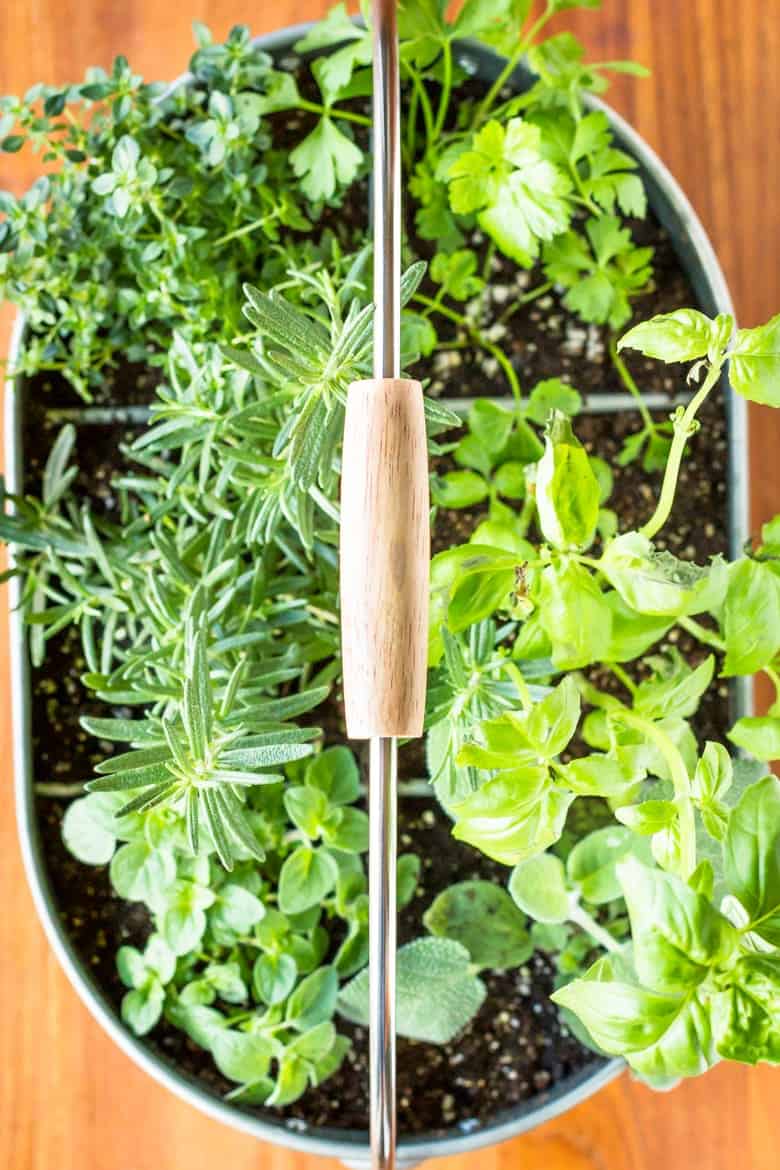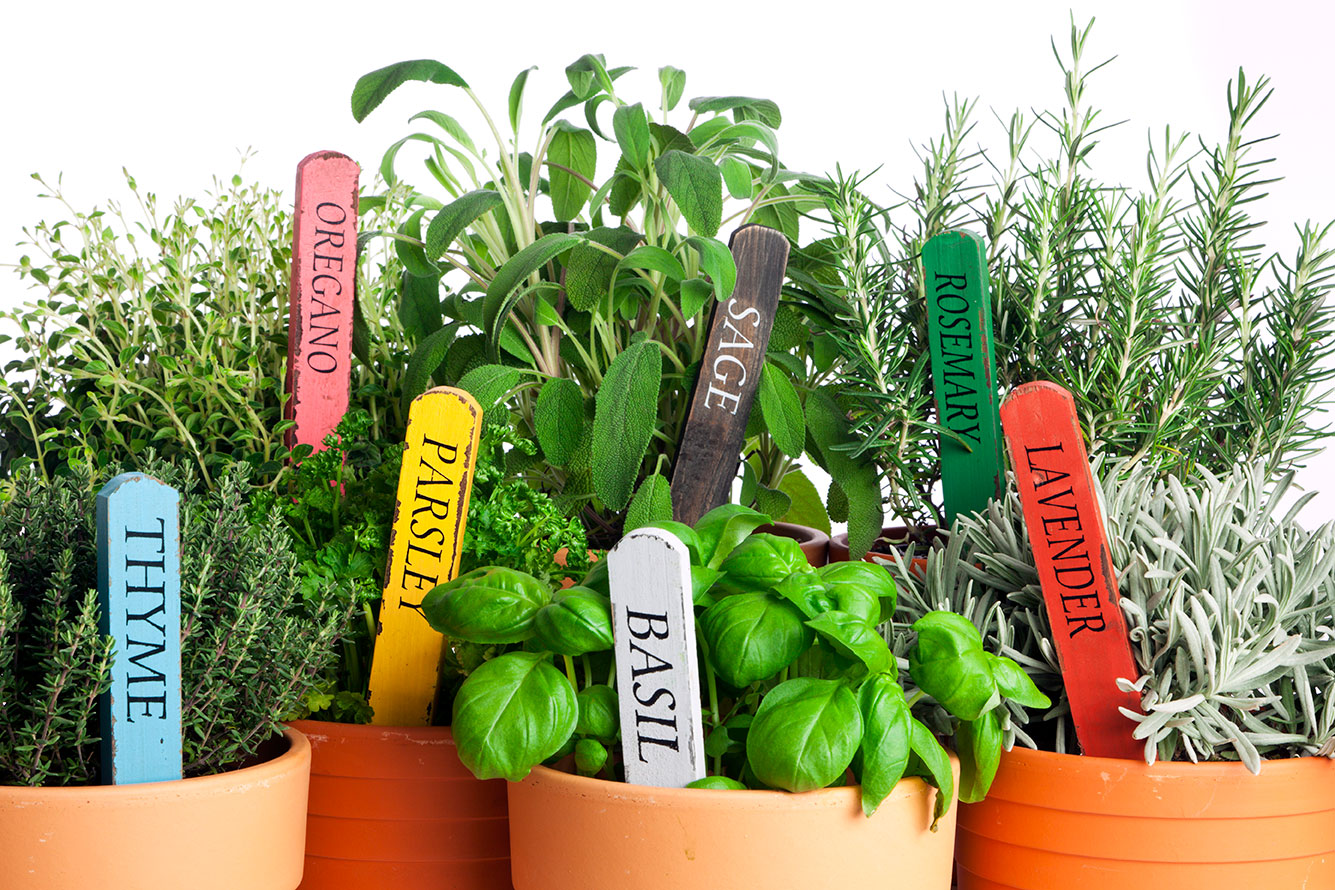Grow the Best Herbs Indoors All Year: Top Guide

Imagine stepping into your kitchen and being greeted by the tantalizing aroma of fresh herbs. No, you haven't been transported to a Mediterranean garden; you're simply reaping the benefits of your indoor herb garden. Growing herbs indoors is not just a delightful hobby; it's a practical way to ensure you have fresh, flavorful ingredients all year round. Let's dive into the world of indoor herb gardening and discover the best herbs to grow indoors all year.
Why Grow Herbs Indoors?
Growing herbs indoors offers numerous benefits. Firstly, it ensures you have a constant supply of fresh, organic herbs at your fingertips. Secondly, it's a cost-effective way to enhance your culinary creations. Lastly, indoor plants, including herbs, can improve air quality and add a touch of greenery to your living space.
Best Herbs to Grow Indoors All Year
Basil
Basil is a staple in many kitchens, and it thrives indoors. This aromatic herb loves sunlight and warmth, making it an ideal candidate for a sunny windowsill. Regularly pinch back the growing tips to encourage bushier growth and more leaves.
Parsley
Parsley is a versatile herb that adds a fresh, slightly peppery flavor to dishes. It prefers bright, indirect light and consistent moisture. Parsley is a biennial, meaning it has a two-year life cycle, but you can enjoy its leaves throughout the year.
Chives
Chives are a member of the onion family and add a mild onion flavor to dishes. They grow well in pots and prefer bright light. Chives are perennial, so they will continue to grow year after year with proper care.
Mint
Mint is a hardy herb that grows vigorously indoors. It prefers partial shade and consistent moisture. Mint is perfect for teas, cocktails, and desserts. Keep it in a separate pot, as it can quickly take over other plants.
Rosemary
Rosemary is a woody, perennial herb with a strong, pine-like flavor. It loves sunlight and well-drained soil. Rosemary can be a bit finicky indoors, so ensure it gets plenty of light and doesn't sit in water.
Thyme
Thyme is a low-growing, perennial herb with tiny, fragrant leaves. It prefers bright light and well-drained soil. Thyme is a versatile culinary herb that pairs well with many dishes.
Herb Growing Tips
Light
Most herbs require at least 6-8 hours of sunlight per day. A south-facing window is ideal, but east or west-facing windows can also work. If natural light is limited, consider using grow lights to supplement.
Water
Herbs generally prefer well-drained soil. Water them when the top inch of soil feels dry. Avoid overwatering, as this can lead to root rot.
Soil
Use a well-draining potting mix for your herbs. You can find specialized herb potting mixes at garden centers or online.
Temperature
Most herbs prefer temperatures between 65-70°F (18-21°C) during the day and a drop of about 10°F (5°C) at night. Avoid placing your herbs near drafty areas or heat sources.
Fertilizer
Herbs don't require much fertilizer. A light application of a balanced, water-soluble fertilizer every 4-6 weeks is usually sufficient.
Setting Up Your Indoor Herb Garden
Choosing Containers
Select containers with good drainage. Terracotta pots are a popular choice, but plastic or ceramic pots also work well. Ensure the pot is the right size for the herb's root system.
Planting
Fill your container with potting mix, leaving enough space for the herb's root ball. Gently remove the herb from its nursery pot, loosen the roots slightly, and place it in the container. Fill in around the roots with more potting mix, firming it gently.
Maintenance
Regularly check your herbs for pests and diseases. Prune them as needed to encourage bushier growth and remove any dead or yellowing leaves.
Harvesting and Using Your Herbs
Harvest herbs in the morning after the dew has dried. This is when their essential oils are most concentrated. Use sharp scissors or pruners to snip off the desired amount.
Fresh herbs can be used immediately in recipes or stored in the refrigerator for up to a week. You can also dry or freeze herbs for long-term storage.

Troubleshooting Common Problems
Yellowing Leaves
Yellowing leaves can indicate overwatering, underwatering, or a nutrient deficiency. Check the soil moisture and adjust your watering schedule accordingly. If the problem persists, consider fertilizing your herbs.
Leggy Growth
Leggy growth is a sign that your herbs aren't getting enough light. Move them to a brighter location or supplement with grow lights.
Pests
Indoor herbs can be susceptible to pests like aphids, spider mites, and whiteflies. Regularly inspect your plants and treat any infestations promptly with insecticidal soap or neem oil.
Conclusion
Growing the best herbs indoors all year is a rewarding experience that enhances your culinary adventures and adds a touch of nature to your home. With the right herbs, proper care, and a little patience, you can enjoy fresh, flavorful herbs year-round. So, why not start your indoor herb garden today? Your taste buds and your green thumb will thank you!
FAQs
What are the easiest herbs to grow indoors? Basil, parsley, and mint are some of the easiest herbs to grow indoors. They are relatively low-maintenance and thrive in indoor conditions.
Can I grow herbs from seeds indoors? Yes, many herbs can be grown from seeds indoors. Follow the seed packet instructions for planting depth and germination times.
How often should I water my indoor herbs? Water your herbs when the top inch of soil feels dry. The frequency will depend on the type of herb, the size of the pot, and the environmental conditions.
Can I use artificial light to grow herbs indoors? Yes, grow lights can be used to supplement or replace natural light. Choose full-spectrum LED grow lights for the best results.
How do I prevent my indoor herbs from becoming leggy? Ensure your herbs are getting enough light and pinch back the growing tips to encourage bushier growth. Regular pruning also helps prevent legginess.

Happy gardening! Remember, every expert was once a beginner. With time and practice, you'll be growing the best herbs indoors all year like a pro.
0 Response to "Grow the Best Herbs Indoors All Year: Top Guide"
Post a Comment